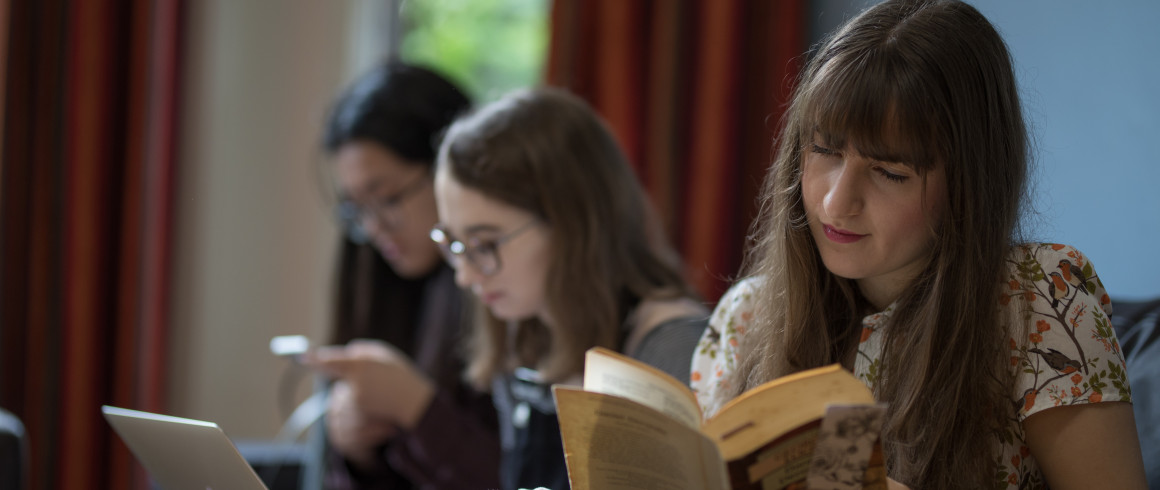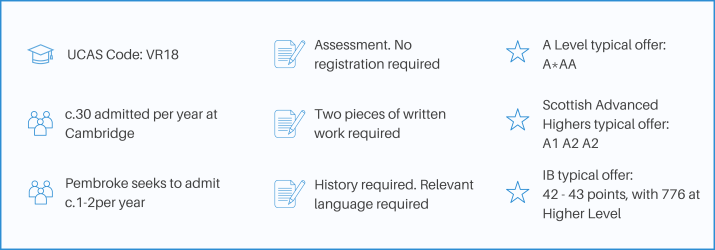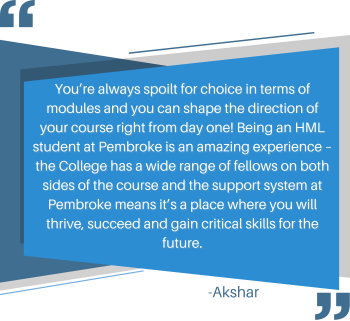History and Modern Languages
The joint degree in History and Modern Languages combines the best of both subjects. It offers the opportunity to develop near native-speaker skills in a foreign language while studying a range of papers relating to the culture and history of the relevant language area; options in some languages also include film and contemporary politics.
Students will also develop analytical skills in History through a wide range of topics in British, European, American and World history, as well as the history of political thought. There will be opportunities to work with historical sources in foreign languages. Those who take this course will spend their third year studying or working abroad, thereby immersing themselves in the language, culture, history and politics of a foreign country.
We require either A Level or IB higher level or an equivalent in the language you are proposing to study at Cambridge (unless you are applying for a language that can be studied from scratch, e.g. German or Russian). If a student proposes to take a language from scratch, we require some evidence of language ability, usually in the form of an A Level or equivalent in another language. We also require History at A Level or IB higher level or an equivalent, but please get in touch with us in advance of making an application if you are not studying History.
History and Modern Languages at Pembroke
Pembroke College has a rich history to draw from and its current students - there are about 2 in each year - are characterised by their interest, their talent and their diversity. We work hard to help our students realise their full potential and we encourage them to explore widely among the available courses in order to develop their own interests. All Cambridge colleges pool their teaching resources to provide supervisions to students in the University, so what students cover is not dependent on the expertise of the fellowship in the College.
Our historians and modern linguists have a strong sense of group identity and individual satisfaction, and over the last ten years our exam performance has been among the best in the university. Throughout the three years of the course, the main teaching that students receive is the weekly supervision. Preparation for the supervision involves guided and self-organised reading and writing an essay. We seek to find the best and most appropriate supervisors for each student and course from across the University. Your Director of Studies will discuss your course choices, arrange your supervisions, and provide oversight over your progress.
In addition to your weekly supervision, you will find many of the lectures put on by the History Faculty and the Faculty of Modern and Medieval Languages and Linguistics very useful for your courses, and you can expect to attend several lectures a week. Some of your courses will be taught through Faculty classes, where you will work with other undergraduate historians from across the University. History students at Pembroke also meet regularly in classes in order to discuss general historical problems - through famous history books, through exploring themes across history or through undertaking their own comparative work. Pembroke also has a beautiful library with a large and up-to-date collection of history books. Moreover, the University Library and the History Faculty Library are two of the finest libraries in the country open to History students.
Pembroke History and Modern Languages Teaching Staff
Pembroke’s history fellows strongly support this joint honours degree, because in their own research they work in languages other than English.
Dr Arthur Asseraf
I’m a historian of France, the French empire, and media. I’m one of the Director of Studies at Pembroke, so I help coordinate teaching for History students in their third year. I grew up in Paris and came to Cambridge as an undergraduate. Most of my research takes me to Algeria, Tunisia, Morocco, France, or somewhere else close to the Mediterranean Sea. You can read more about my research interests in my faculty profile here. I’m particularly interested in using different formats to do history, from social media to creative writing.
Prof. Paul Warde
Paul teaches environmental and economic history. His latest book explores the concept of sustainability and a co-written history of the environment. Environmental history more than some other forms of history cuts across linguistic and national barriers, and Prof. Paul Warde therefore conducts his research in several European languages.
Dr Caroline Burt
I'm one of the Directors of Studies in History as well as being Director of Undergraduate Admissions at Pembroke College. The key thing about being a Director of Studies to me is seeing students progress and helping them to do that. When a student fulfils their potential, they have a huge sense of achievement, which is great to see!
I came to Cambridge as an undergraduate from a working-class background in Manchester, and Cambridge seemed a world away from my experience! For a start, it was much smaller than Manchester, but so many things seemed alien to me. I feared that I wouldn't fit in, wouldn't be good enough, but I did and I was - so if there's a moral to that story it's never to dismiss an application to us on the grounds that you won't be good enough if your grades are telling you the opposite; and not to assume that you won't fit in!
My own research is on medieval history, and I work at the intersection between politics, government and ideas. I wrote my PhD and first book on Edward I. My second book is on a longer period from 1199 to 1399; it tells the story of six dramatic reigns, including two depositions and Magna Carta, as well as the ways in which the English state took shape in the same period - through the creation of Parliament, a system of national taxation, professional armies, for example.
I love to understand the ways in which ideas and pragmatism are combined in political actors, and how, given the extensive reach of English medieval government, that directly affected people across England in the alter medieval period.
Dr Paul Cavill
I'm one of the Directors of Study in History. As such, I'm here to help our historians make the most of their time at Pembroke on an academic front. I'll be organising your supervisions and also teaching you as a group about different kinds of history. (Classes for first-years are a bit like a historians' book club.) I work on early modern British history and so, if you choose papers in that area, I'll also be supervising you myself. (You can read more about my interests on my Faculty webpage) I'm also keen to support the student-led History Society and always enjoy our annual get-together at the Historians' dinner.
Prof. Jon Parry
Jon works on the political history of 19th- and 20th-century Britain. He has written about British attitudes to Europe and about the Prime Minister Disraeli. He has recently published a book on British perceptions of the Middle East.
Prof. Renaud Morieux - Director of Studies (Part II)
Renaud specialises in transnational history of the 18th-century, focusing on Britain, France and their empires. He has a particular interest in the history of oceans, migration and incarceration.
Prof. Chris Young
Pembroke’s modern linguists have varied interests in historical topics. Prof. Chris Young’s work straddles medieval chronicles and the history of sport and the media in modern Germany, Europe and the Cold War.


